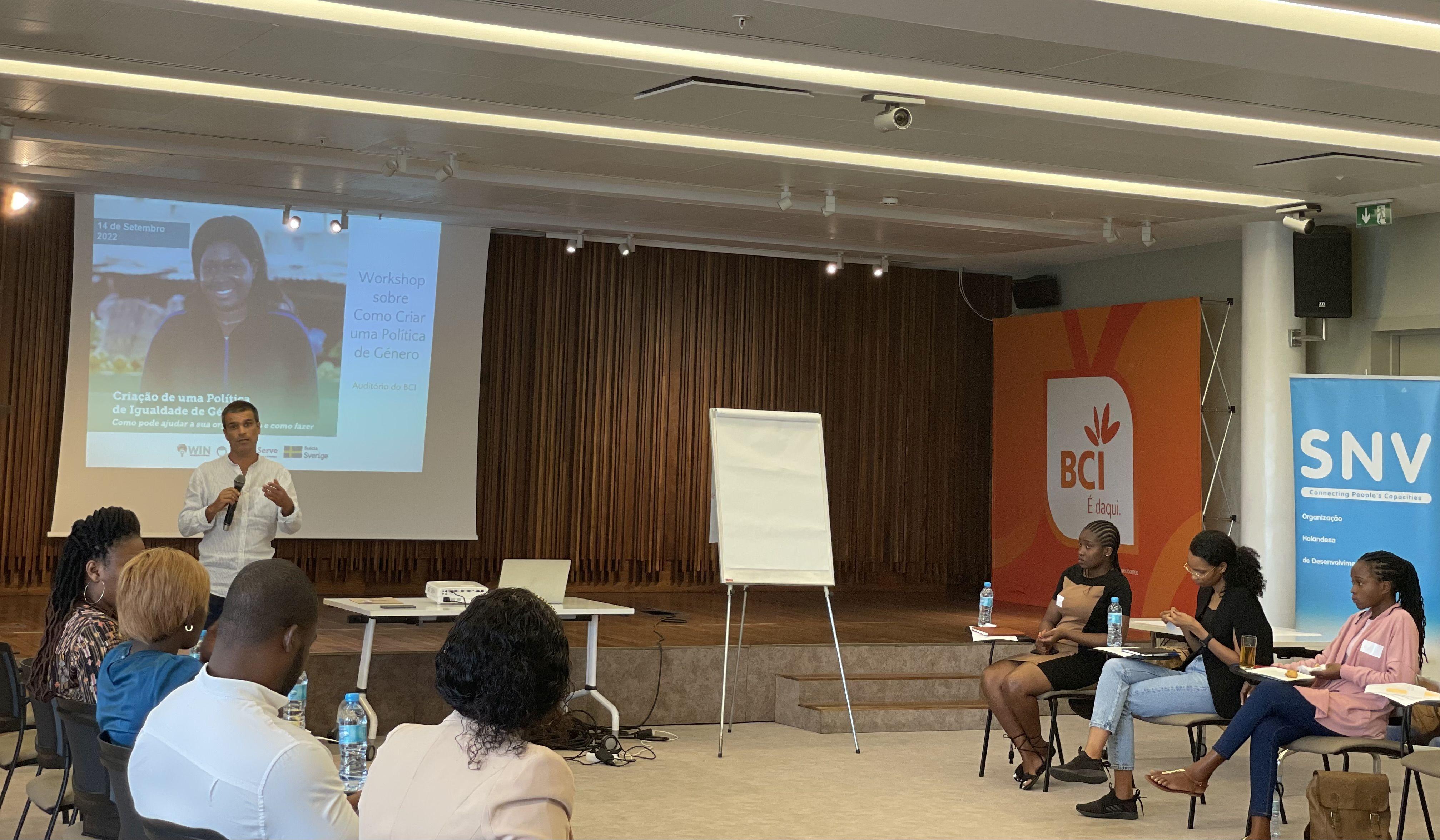Renewable energy sector companies trained to promote gender equality in the sector
As part of the implementation of the BRILHO programme, SNV - Netherlands Development Organisation in partnership with TechnoServe, through the WIN programme, and funded by UK aid from the UK government and Sweden, carried out a training on tools and strategies for the promotion of gender equality and social inclusion within the companies supported by the BRILHO programme.
The trainings that took place in the city of Maputo in August and September, covered fifteen companies across three days, covering a diversity themes such as: concepts of gender equality and equity; sex desegregated database, unconscious gender bias and how companies can tackle them from recruitment, selection, retention, professional development to the leadership processes; strategies to develop gender policies within companies and the advantages of these tools.
The initiative is part of one BRILHO’s mandates which aims to support companies to enhance its performance through the inclusion and empowerment of women in the sector as collaborators and leading businesses in the value chain, as well as increasing the number of women with access and use (domestic and productive) of modern energy solutions in off grid communities.
`The companies were receptive to the training contents, and it was clear that there is still a long way because in the energy sector we have a big challenge in terms of gender equality. It is notable that there is a deficit of women in energy sector companies and the few that exist are more in sales or administration, but I believe that with this approach brought by BRILHO can be reversed this scenario soon. ` - Taciana Tomé, facilitator of the training
The training participants mentioned that part of the reasons of gender inequality and women’s exclusion is related to the areas where they operate and mainly with the approaches used in recruitment and selection which are not inclusive and gender sensitive.
`We had already identified that for the rural areas where we operate it is complicated to look at this aspect of gender equality, first because we had no knowledge of these tools, but mainly because of cultural issues. With this training we are certainly able to design some strategies to see if we can be more gender sensitive. ´- Sofia Nazaré, Ignite Human Resources Manager.
On the other hand, the general manager of YAZU referred that during the training it became clear that women have had many more barriers to enter the labour market in the energy sector and it is necessary to empower them because there are many benefits not only for companies but mainly for society.
`At YAZU about 70% are women but unfortunately, we have a very small number in decision making and being here it was clear that I need to change within my organization, and we will empower more women and mainly create a gender policy that is inclusive for both men and women.' - Hélder Mungoi, General Manager of YAZU
Women's participation in the global workforce is beneficial for economic growth. If their participation would be like men's, they could contribute about US$28 trillion to global annual GDP.[1]The participation of women in companies of energy sector guarantees the socially fair distribution of the socio-economic opportunities of the global energy transition and to have the men and women’s perspectives, skills and talents articulated within the company as well as contribute to increase productivity.[2]
In Africa, women play a minimal role in the energy industry, with only 21% in the overall workforce at the energy concessionaires, out of this 15% are in administrative positions and only 6% occupy technical positions.[3]
In the Mozambique case, the lack of general sex-disaggregated data in the energy sector limit to monitor progress towards gender equality in the seventh Sustainable Development Goal (SDG), as well as their contribution in the sector.
With this trainings cycle, it is expected that by the end of 2024, companies operating in off-grid areas will be able to grow economically and challenge gender stereotypes and barriers by integrating more women as employees, increasing female leadership in business, and influencing decision making in the energy sector.
BRILHO: We Boost Companies, We Enlighten Lives!
[1] Woetzel, J. et al (2015). The power of parity: How advancing women’s equality can add $28 trillion to global growth.
